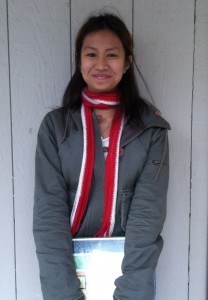
As president of MVHS Red Cross, senior Vivian Chan believes community service has had a profound impact on not only her local community, but also herself.
“Health and safety, disaster, international [assistance and education], service to the armed forces and blood,” Chan said when asked about the types of activities MVRC members may partake in.
Chan believes that all the community service opportunities offered by the Red Cross Club assist the community in a profound way. However, out of these opportunities, Chan identified the education programs regarding health, safety and disaster relief as the most beneficial.
“That’s kind of our biggest reach: helping people with disasters [both environmental and health-related],” Chan said.
These classes are often scheduled at the Silicon Valley Red Cross chapter building with Basic Aid Training classes such as CPR taught twice a month during the afternoon.
CPR, first aid, fire safety, water safety, poison control and choking relief are among the skills students may pick up from these classes. Other classes cover disaster preparation, such as in the cases of a fire or an earthquake.
According to Chan, students may use the knowledge gained from these classes to great effect in their own lives. She cited the example of Logan Ferlito, Red Cross Silicon Valley Youth Services Manager, whose student was able to save his own life using the choking relief tips he learned in the class.
Chan also has personally benefited from giving back to the community feeling fulfilled, teaching two BAT classes per month.
“If someone is choking, [or] if someone is having a heart attack, I am giving [students] the knowledge to save someone or themselves, and I think that’s pretty amazing,” Chan said, “I guess I would say its… worthwhile.”
More active involvement, less monetary compensation
On Nov. 8, Typhoon Hiyan struck the islands of the Philippines, displacing upwards of 12 million people across 7,100 islands. Many people donated to the Typhoon Haiyan Relief for Northern Palawan fundraiser which was

the immediate, international relief response to the disaster. Senior Alexa Suarez, who has family in the Philippines and is Filipino herself, did not. Not only did she abstain from donating money to the relief effort, she advocated against it.
“When it comes to third world countries, a lot of their systems are corrupt,” Suarez said. “We know a lot of the money might be going to other people and not where we intended it to go.”
Suarez’s concern is justified. After hurricanes Katrina and Sandy, countless scams were set up to take advantage of the public goodwill. Thousands of dollars donated to help with relief efforts were instead put into someone else’s pocket, the government issued formal warnings against these scams.
While Suarez opposes donating money to charities and fundraisers, she wholeheartedly supports active community service.
“I feel like going out and doing stuff is much more important than donating money,” Suarez said. “I feel comfortable only when I can see the benefits.”
In fact, Suarez is very active in community service. With her grandfather, a retired surgeon who holds medical missions in third world countries, Suarez has volunteered in places such as Africa and Haiti. In these settings, Suarez can see her work’s direct impact on the people she is trying to help.

Passionate volunteering, with our without money
Senior Jessica Li gives back to the community through her musical talents. With her orchestra, Li performs free concerts for the underprivileged. She is also involved in programs that teach kids about music and how to
play instruments. While Li participates in many active community service, she, like Suarez, is unsure of the effectiveness of passive community service like donating money. However, different from Suarez,even though Li has heard of scams and dishonest organizations, she believes that donating money is still good when she can not actively go out and help.
“Even though a lot of the money might not go where it’s supposed to go, some of it will still go to the cause. And a little bit is better than nothing,” Li said, “I only support donating money when I can’t directly help.”







